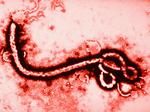Kaiser Permanente has donated $1 million to two international aid groups to support "direct medical care and safe clinical treatment practices" in West Africa, its first major donation to help halt the spread of the virus.
The money will help bolster medical care in Liberia, Sierra Leone and Guinea, where the vast majority of Ebola-related deaths have taken place.
Earlier: RNs, others raise concerns about U.S. Ebola preparations
Oakland-based Kaiser has contributed $500,000 each to two aid groups, Doctors Without Borders/ Medecins Sans Frontieres and the International Medical Corps, and officials emphasized they may "provide additional aid as the situation continues to develop."
Caitlin Cobb, a Kaiser spokeswoman told me that Kaiser doesn't have a specific timeline for giving additional aid, since the situation in West Africa is "fluid and developing," but is prepared to send more if needed.
The first batch of funding was disbursed earlier this week, Kaiser said Wednesday afternoon.
"The 2014 Ebola outbreak is the largest in history and the first in West Africa, where the affected countries have little healthcare infrastructure and minimal experience managing a public health emergency of this magnitude," Raymond Baxter, Kaiser's senior vice president for community benefit, research and health policy, said in the Oct. 8 statement.
Kaiser said it is "of the utmost importance that we collaborate with experienced partner agencies on the ground, to treat and isolate the affected patients and ensure the safety of clinicians and others."
Cynthia Telles, chair of the board of directors' community benefit committee at Kaiser Foundation Hospitals and Health Plan Inc., said Doctors Without Borders and International Medical Corps can put the resources to "immediate use" in West Africa, where thousands have died. Some observers fear the potential collapse of the economies and infrastructures in the three countries most ravaged by the outbreak.
Kaiser officials said they're closely monitoring the situation in West Africa through communication with the federal Centers for Disease Control and Prevention.
The funding for Doctors Without Borders will help treat and isolate of patients as well as train local and volunteer health workers in Liberia, Sierra Leone, Guinea and the Democratic Republic of the Congo, according to Kaiser. The funds for International Medical Corps will help create and support two roving teams of trainers in Sierra Leone and Liberia "to rapidly expand the number of trained health care workers" there.
More than 3,400 people have died in West Africa, and a worst-case projection by the CDC indicated that 1.4 million Africans could be infected by late January unless containment and treatment efforts are significantly boosted.

